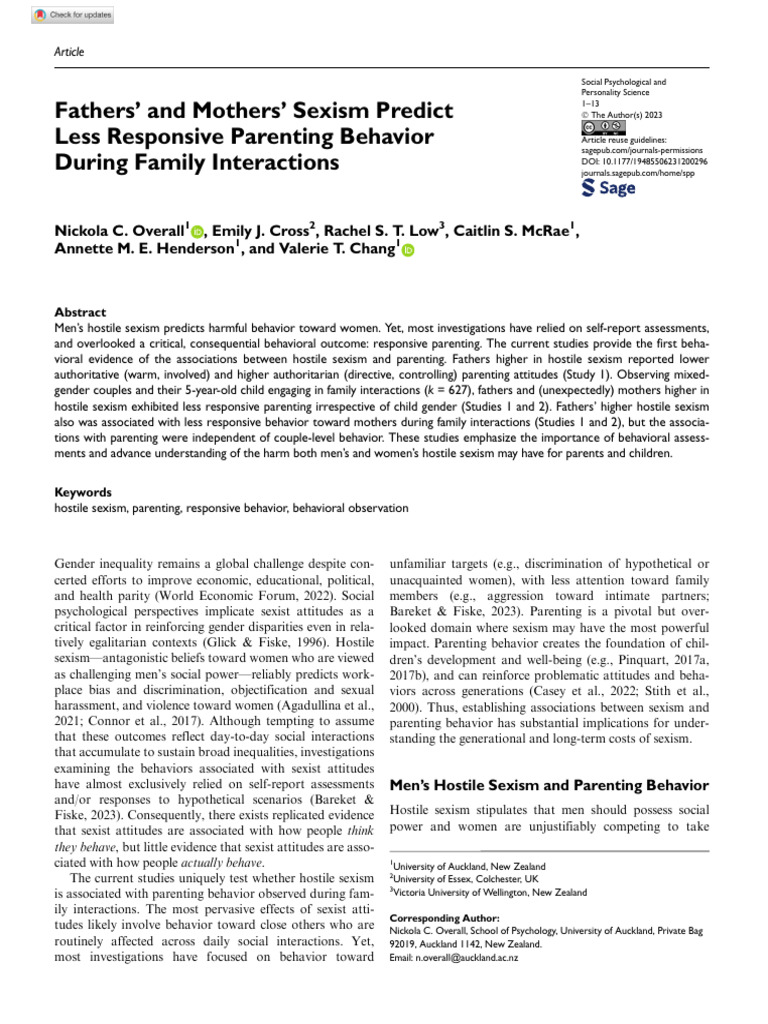In an age marked by profound sociocultural transformations, the teachings of the Bahá’í Faith shed light on the dismantling of deeply entrenched societal norms, including sexism. As fathers engage in the upbringing of their children, they hold a pivotal role in shaping attitudes towards gender equity. Might one ponder: how can fathers actively participate in this vital endeavor? This article presents a comprehensive guide to understanding and implementing Bahá’í teachings that advocate for gender equality, while simultaneously providing practical strategies for fathers aiming to confront and dismantle sexism.
At the core of Bahá’í philosophy is the principle of the oneness of humanity. This doctrine posits that all individuals, regardless of gender, are imbued with equal value and potential. Fathers must first internalize this fundamental belief, recognizing that their attitudes and actions can significantly influence the perceptions of their children. This elevation of equality reinstates the importance of conscious parenting, where fathers are tasked with modeling equitable behavior in their interactions.
As a father, one must cultivate an awareness of the societal constructs surrounding gender roles. The prevailing narrative often relegates women to subordinate positions, perpetuated through systemic bias. To combat this, fathers can engage in critical self-reflection, examining their own biases and privileges. Are there moments when language or behavior inadvertently reinforces stereotypes? Confronting these internalized notions is an essential step in fostering an equitable environment.
Moreover, fathers can seize opportunities to illuminate the contributions of women—historically and contemporarily—in various domains such as science, art, and leadership. Bilateral education, where both boys and girls learn about the achievements of women equally, dismantles the notion of male superiority. Consider family discussions about influential women during special occasions, or integrating relevant literature into bedtime stories. This approach invites children to appreciate the myriad roles women have occupied while instilling respect and admiration.
The Bahá’í teachings also underscore the significance of collaboration in familial and social spheres. Fathers are encouraged to foster cooperation between genders within their households. Collaborative decision-making processes in family matters exemplify respect and shared responsibility. Ask reflective questions during conversations: “How do you feel about this decision?” or “What do you think we should do next?” Empowering children to express their opinions cultivates a culture of equity.
Furthermore, discussions surrounding emotions should not be viewed through a gendered lens. Bahá’í teachings advocate for the acknowledgment of emotions as intrinsic to the human experience. Fathers must create a safe space for children to articulate their feelings, irrespective of societal expectations regarding gendered emotional expression. Framing emotional discussions in an open and accepting manner encourages resilience and emotional intelligence in children, thus dismantling harmful stereotypes about masculinity and femininity.
In addition to fostering emotional fluency, fathers must also address the disparities present within educational and sporting contexts. Historically, boys and girls have been channeled into disparate realms based on archaic perceptions of capability. Fathers can combat such discrimination by encouraging their children, regardless of gender, to engage in a variety of activities—from mathematics and science to dance and sports. This holistic approach removes barriers and encourages children to pursue their passions freely.
Celebrating diversity in gender expression is another vital aspect of dismantling sexism. Fathers should strive to acknowledge and respect varying gender identities and expressions. The Bahá’í teachings advocate for the recognition of diverse identities as part of humanity’s tapestry. Educating oneself and children about various gender expressions cultivates a respectful understanding of individuality, promoting a culture where all forms of identity are accepted and cherished.
Moreover, fathers have the unique opportunity to embody allyship in both familial and community contexts. Encouraging discussions around current issues that relate to gender equality can help expand children’s understanding of social justice. Engagement in community service or advocacy programs centered on women’s rights fosters a sense of social responsibility. Fathers can lead initiatives that support the empowerment of marginalized gender groups, demonstrating the importance of action in complementing words.
It is essential to recognize that the journey towards dismantling sexism requires continuous education and genuine commitment. Fathers should never shy away from seeking knowledge about gender issues; attending workshops, reading literature, and engaging in dialogues can significantly enhance their understanding. By modeling a spirit of lifelong learning, fathers provide an exemplary model of adaptability and growth for their children.
Lastly, it is crucial for fathers to teach the importance of empathy. By placing themselves in others’ shoes and demonstrating compassion, fathers can inspire their children to cultivate understanding towards individuals across the gender spectrum. Empathy emerges as a fundamental tenet of the Bahá’í Faith, underscoring the interconnectedness of human experience.
In conclusion, the journey to dismantling sexism is intricate, requiring earnest dedication from fathers. By embodying the principles of equality, fostering open dialogue, celebrating diversity, and committing to continuous growth, fathers can significantly impact the societal landscape for future generations. The Bahá’í teachings provide a solid framework, guiding fathers in cultivating a home environment that epitomizes equity and respect. Embracing this call to action is not merely a duty but an opportunity to sow seeds of change for a more just world.
